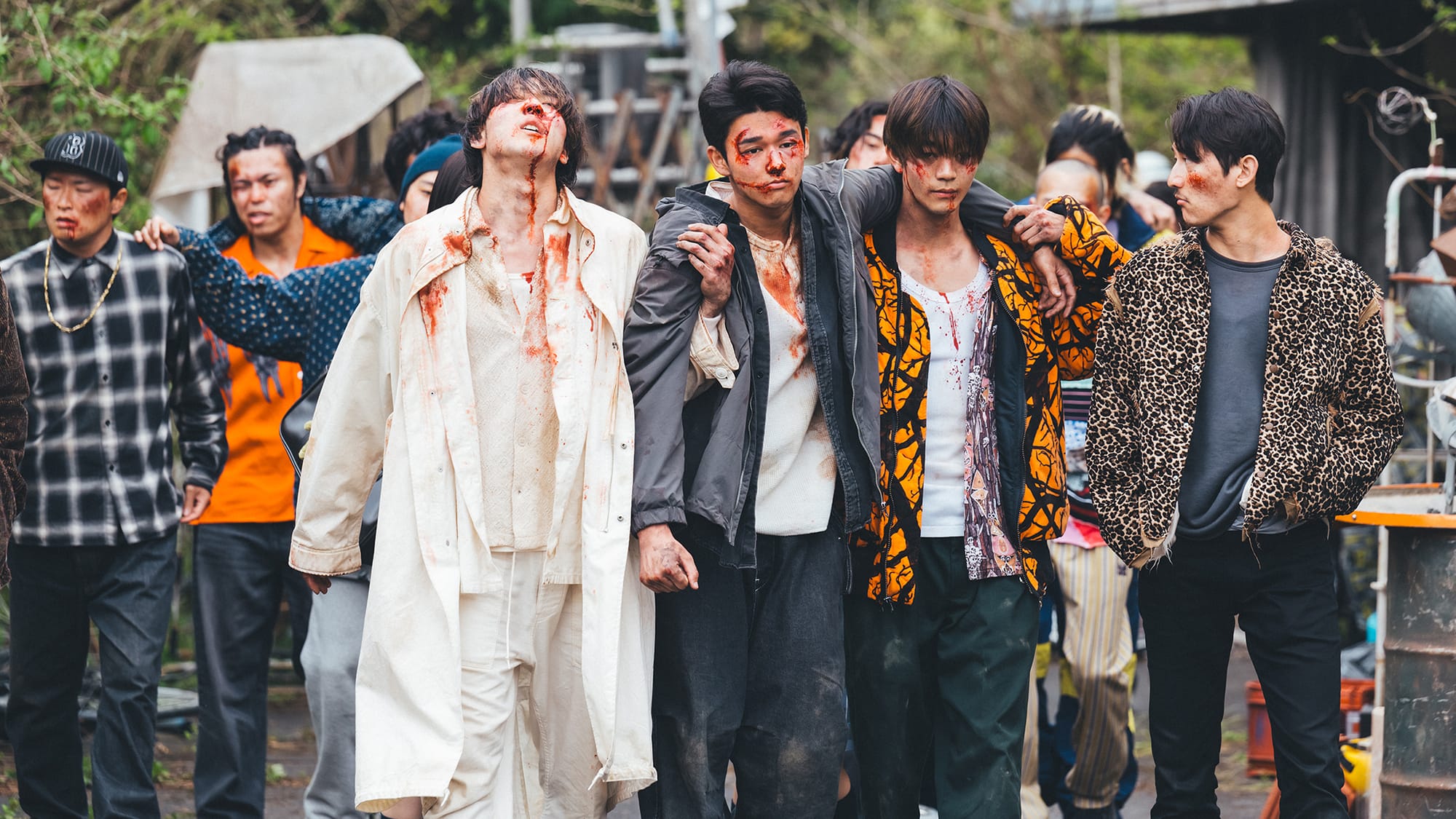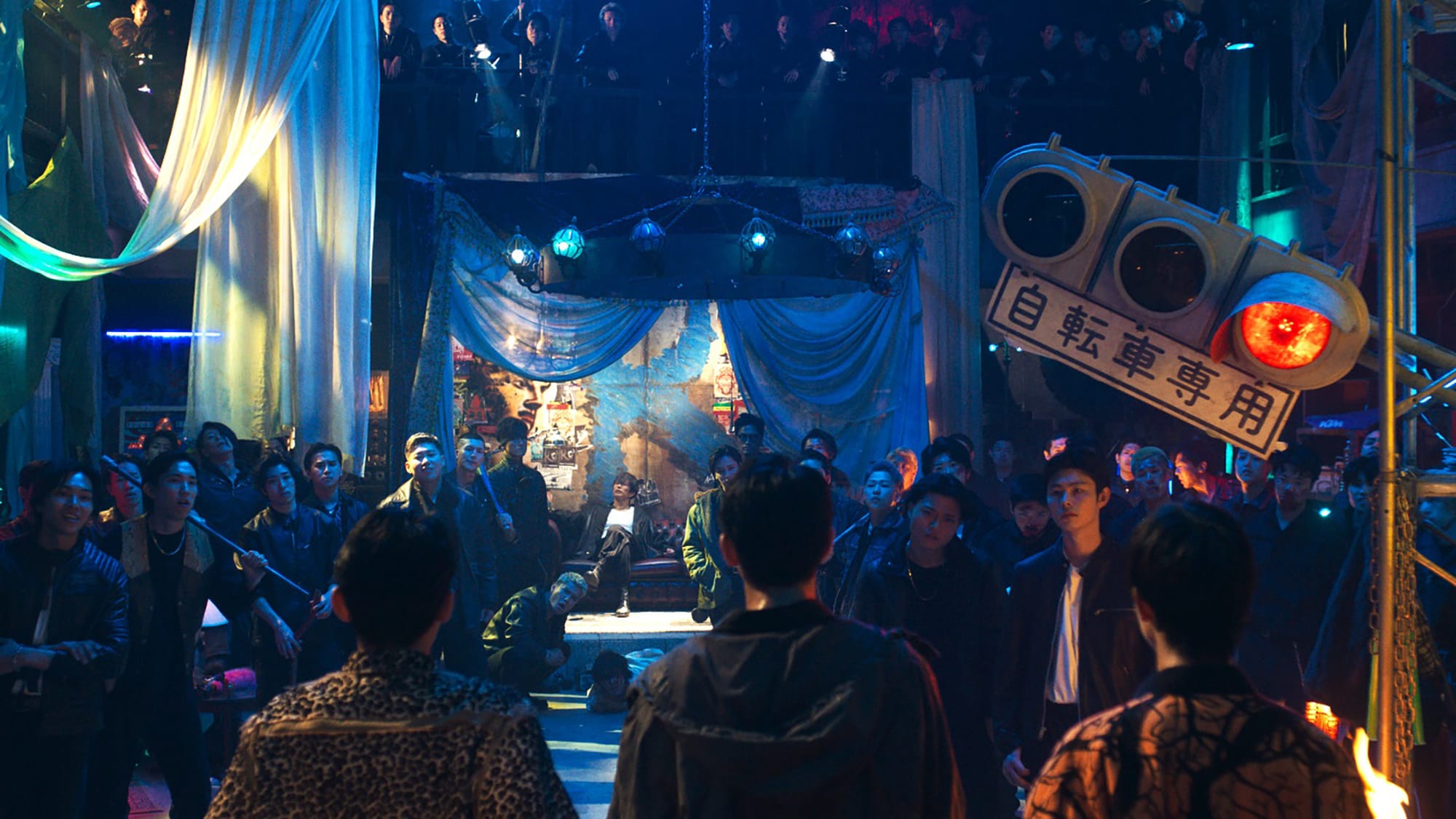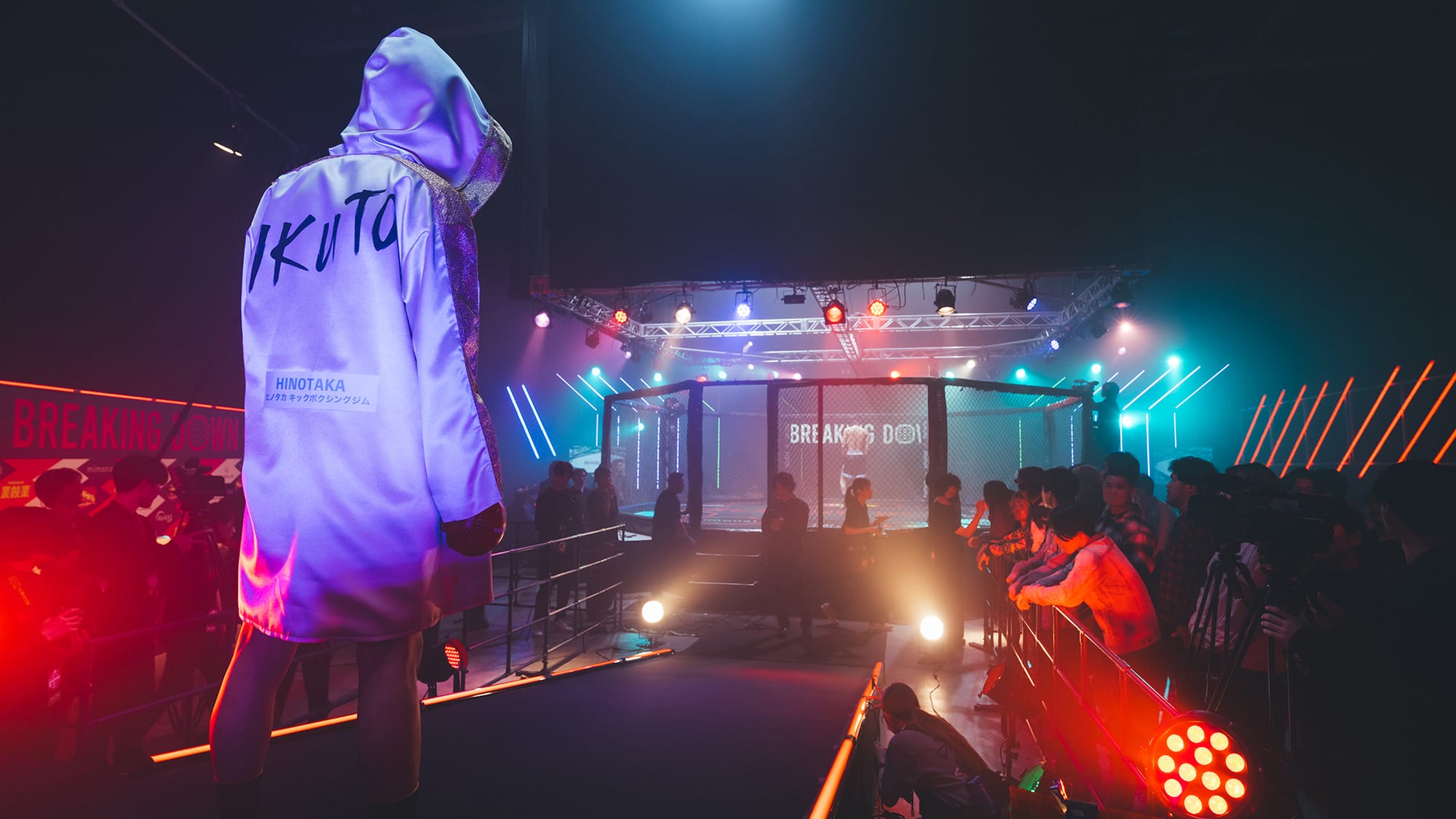Blue Fight (aka Blazing Fists) (Miike Takashi, 2025)

A slightly different version of this was originally published at InReview Online as part of their coverage of the 2025 International Film Festival Rotterdam.
I watched two films for this year’s IFFR. One was the smash hit Hong Kong family melodrama set in the world of funerals The Last Dance, and the other was this Miike Takashi kickboxing movie. Only one of them made me tear up, and it wasn’t the one with all the funerals. Blazing Fists (or as its on-screen English title calls it, Blue Fight, or possibly as wikipedia claims, Blue Fight: The Breaking Down of Young Blue Warriors) is the kind of movie Miike makes every once in awhile (as with 2019’s First Love) to just remind us all that despite his audacious weirdness (and there is a guy conspicuously wandering around the movie inexplicably wearing an animal mascot costume), he remains one of the most technically proficient and gifted craftsmen in world cinema. He knows exactly how to make a traditional boxing picture while also giving it his own unique flavor, a true artist stamping his personal vision on a time-worn formula, reinventing it in his own image while still hitting all the right notes to satisfy the demands of one of cinema’s most enduringly popular genres.
Kaname Yoshizawa stars as a young hoodlum named Ryoma who gets sent to juvie. There he meets another inmate named Ikuto, played by Danhi Kinoshita in what should be a star-making performance. The two become friends and, after a guest lecture by real-life MMA star Mikuru Asakura, who runs a kind of reality show type martial arts program, the two decide that, once they’re freed, they’ll join a gym and train hard so they can compete in Asakura’s program, called Breaking Down. But once on the outside, the two buddies are beset by problems all around them: at least three different gangs of hoodlums want a piece of them; they have to get boring jobs in a factory; their moms don’t quite believe they can reform; a pair of pretty girls might be interested in them; and worst of all, Ikuto was innocent of the crime that got him sent to juvie in the first place—he was blamed for a robbery that Ryoma actually committed.

Miike juggles all these plot threads with aplomb. We may not always know exactly which gang is which or what their motivations are, but we can trust that the director knows what he’s doing and it will all pay off in the end. Which it does in a spectacular finale, rising across the film’s final third as characters once seen as single-dimensional villains are proven to be just as complex and contradictory as our heroes. It’s all anchored by Kinoshita’s performance as Ikuto, a young man of righteous stubbornness. Not a perfect hero by any means, but an aspirational example for everyone he meets to follow. He’s a character with natural charisma, the kind of man that inspires everyone he meets to want to be a better person. In lesser hands he could come off as cartoonish or hokey, but Kinoshita keeps him grounded and real and Miike surrounds him with so many other kinds of corrupted or inadequate manliness that his leadership seems instead to carry the simplicity of truth. He’s just a good guy in a world that isn’t.
And Miike gives us all the thrills of a traditional brawler as well. There are boxing matches that are intricate in their choreography and thoughtfulness, conveying something of the thinking match that goes into every fight. But there are also all-out street fights that are a chaos of flying fists and feet and whatever other props happen to be lying around the back alleys and grimy bars of the Japanese underworld. It all culminates in a massive free-for-all between the teens and a vicious gang of psychotic bikers, the young men with their outlandish clothes and complicated haircuts taking on an army of black-leather-clad tough guys and their too calm to be anything but incredibly dangerous boss.

But more powerful still is the film’s coda, which should be the final boxing match, a showdown between the forces of the rich and powerful and the poor and honest. Miike cuts away from it at just the perfect moment, with the realization that the result of fight itself isn’t what’s important. That what matters is that the fight happens at all and that it wouldn’t be possible without this wild community of weirdos, brought together in friendship by nothing other than a shared sense of humanity and justice and the beautiful belief that things don’t have to be the way they are.
